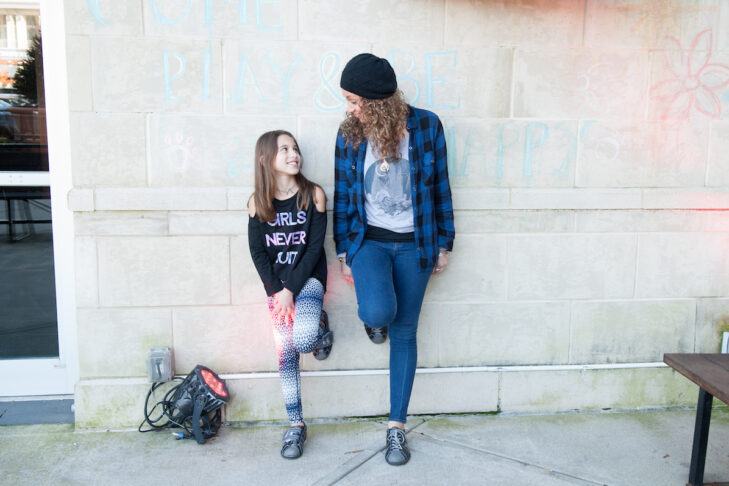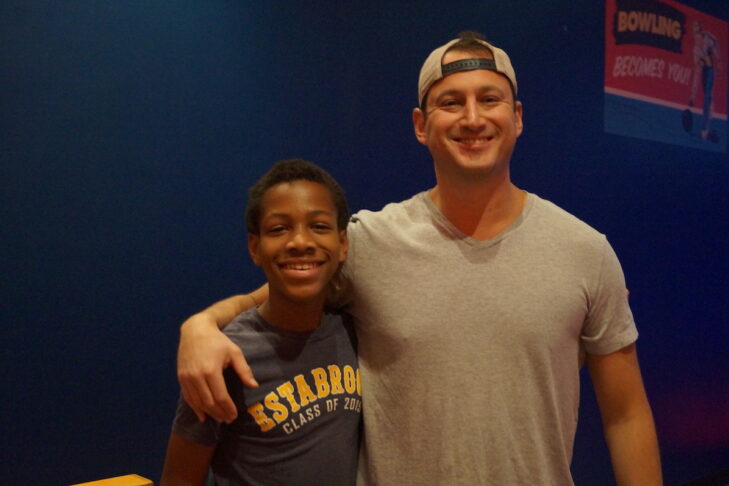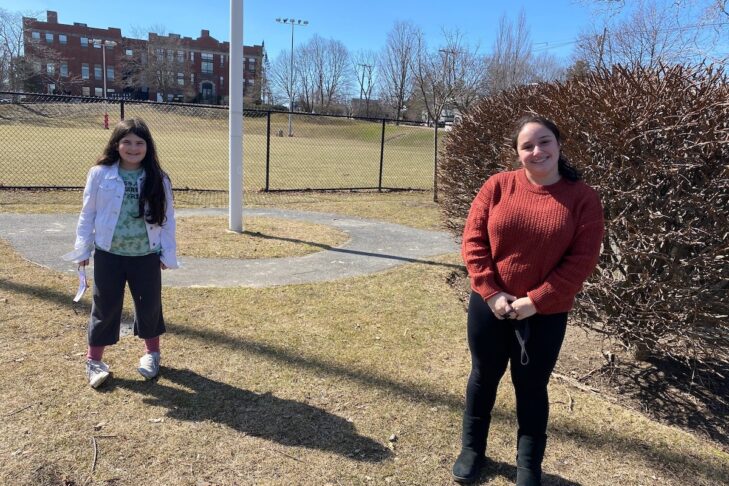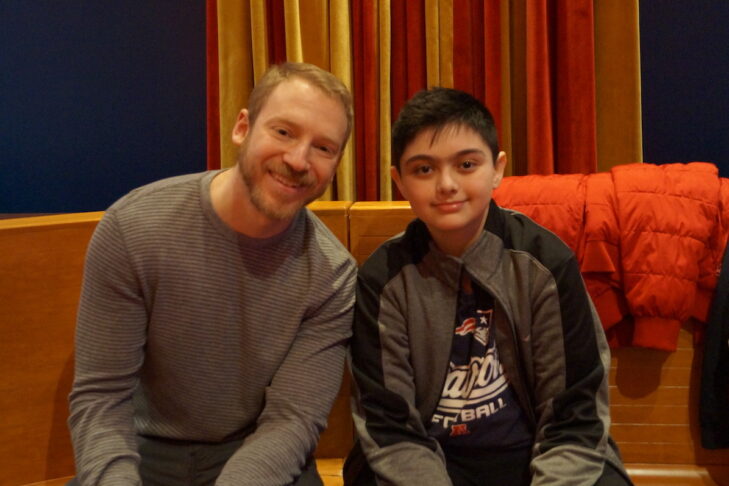The other day, I wrote about joining the Friend 2 Friend program offered through Jewish Big Brothers Big Sisters of Greater Boston (JBBBS), where friendly adults match with a pal who has mild to moderate disabilities for regular outings and check-ins. But, before becoming a parent, I was part of the mentoring program, which pairs children aged 6-18 with a “Big” who provides role-modeling, encouragement and friendship.
I wholeheartedly recommend the program. But I’ll be honest: It’s a commitment. You should see your “Little” a couple times a month, and you can’t flake out on a kid. (This is why it’s sometimes hard for parents to enroll in the program, what with the logistics of juggling your own child’s schedules!)
For people whose schedules allow, it’s a wonderfully gratifying experience to watch a child learn and grow, and to provide a kind of mentorship that really doesn’t exist in everyday life. Over time, you really observe how much your presence matters. In fact, most matches stay with kids for two years or more, creating a kind of deep bond that can last even after the pairing ends.
Related
The program is especially in need of men to pair with boys who have autism; women often gravitate toward JBBBS (and Big Brothers Big Sisters of America in general), but men are tougher to find. Maybe they don’t think of themselves as nurturers or believe they have what it takes to be a role model. I’m here to tell you: It’s rewarding and simple! If you have good intentions and a desire to help, that’s more than half the battle right there.
There is a thorough screening process (background checks and interviews), but the relationship itself should be easy and fluid, from going for ice cream to playing soccer in the park to checking out a movie. This isn’t a clinical role; it’s about being a mentor and a caring presence in the life of a kid who needs it.
Most meetups last a couple of hours twice per month, although I happen to know pairings that have happened more frequently, depending on schedules and need. The point is, it ends up feeling like an organic investment in your life, not a to-do list item. You don’t even have to be Jewish!

JBBBS clinical program director Laura Shulman Brochstein told me that the ideal match, especially for a boy with mild autism, is patient and flexible; reliable (you have to show up when you say you will!); and comfortable with a “Little” who might have limited or intense interests, such as race cars or Minecraft.
“It’s important to meet them where they’re at before trying to introduce new activities, [and mentors should have] a willingness to build a relationship with a ‘Little’ by engaging with his interests and then introduce new activities slowly and steadily, offering new ideas to engage with,” she says.
I used to take my “Littles” mini-golfing, to the Museum of Science and even to get our nails done (a win-win on many levels). The point wasn’t so much the activity; it was about the time together.
And, yep, sometimes I felt out of my depth or unsure how to set a limit or address a behavior issue. The nice thing was, my social worker was always checking in and very available to manage the relationship, so I wasn’t trying to navigate the process on my own. JBBBS social workers play a key role in the match, so you definitely have support.
As we emerge from the stress of the pandemic, kids need support more than ever: This is a perfect time to apply. And, again, I’m happy to answer any questions!







